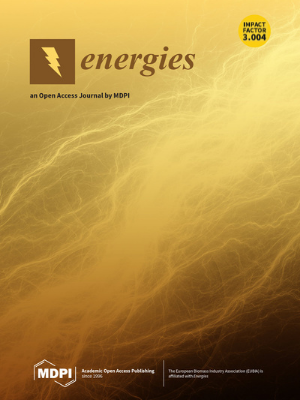Review on Battery State Estimation and Management Solutions for Next-Generation Connected Vehicles
IF 3.2
4区 工程技术
Q3 ENERGY & FUELS
引用次数: 0
Abstract
The transport sector is tackling the challenge of reducing vehicle pollutant emissions and carbon footprints by means of a shift to electrified powertrains, i.e., battery electric vehicles (BEVs) and plug-in hybrid electric vehicles (PHEVs). However, electrified vehicles pose new issues associated with the design and energy management for the efficient use of onboard energy storage systems (ESSs). Thus, strong attention should be devoted to ensuring the safety and efficient operation of the ESSs. In this framework, a dedicated battery management system (BMS) is required to contemporaneously optimize the battery’s state of charge (SoC) and to increase the battery’s lifespan through tight control of its state of health (SoH). Despite the advancements in the modern onboard BMS, more detailed data-driven algorithms for SoC, SoH, and fault diagnosis cannot be implemented due to limited computing capabilities. To overcome such limitations, the conceptualization and/or implementation of BMS in-cloud applications are under investigation. The present study hence aims to produce a new and comprehensive review of the advancements in battery management solutions in terms of functionality, usability, and drawbacks, with specific attention to cloud-based BMS solutions as well as SoC and SoH prediction and estimation. Current gaps and challenges are addressed considering V2X connectivity to fully exploit the latest cloud-based solutions.下一代互联汽车电池状态估计和管理解决方案综述
交通部门正在通过向电气化动力系统(即电池电动汽车(BEV)和插电式混合动力电动汽车(PHEV))的转变来应对减少汽车污染物排放和碳足迹的挑战。然而,电气化车辆带来了与高效使用车载储能系统(ESS)的设计和能源管理相关的新问题。因此,应高度重视确保ESS的安全和高效运行。在此框架下,需要一个专用的电池管理系统(BMS)来优化电池的充电状态(SoC),并通过严格控制电池的健康状态(SoH)来延长电池的使用寿命。尽管现代车载 BMS 技术不断进步,但由于计算能力有限,无法针对 SoC、SoH 和故障诊断实施更详细的数据驱动算法。为了克服这些限制,目前正在研究云内 BMS 应用的概念化和/或实施。因此,本研究旨在对电池管理解决方案在功能性、可用性和缺点方面的进展进行新的全面评述,特别关注基于云的 BMS 解决方案以及 SoC 和 SoH 预测和估算。考虑到 V2X 连接可充分利用最新的基于云的解决方案,该报告还探讨了当前的差距和挑战。
本文章由计算机程序翻译,如有差异,请以英文原文为准。
求助全文
约1分钟内获得全文
求助全文
来源期刊

Energies
ENERGY & FUELS-
CiteScore
6.20
自引率
21.90%
发文量
8045
审稿时长
1.9 months
期刊介绍:
Energies (ISSN 1996-1073) is an open access journal of related scientific research, technology development and policy and management studies. It publishes reviews, regular research papers, and communications. Our aim is to encourage scientists to publish their experimental and theoretical results in as much detail as possible. There is no restriction on the length of the papers. The full experimental details must be provided so that the results can be reproduced.
 求助内容:
求助内容: 应助结果提醒方式:
应助结果提醒方式:


